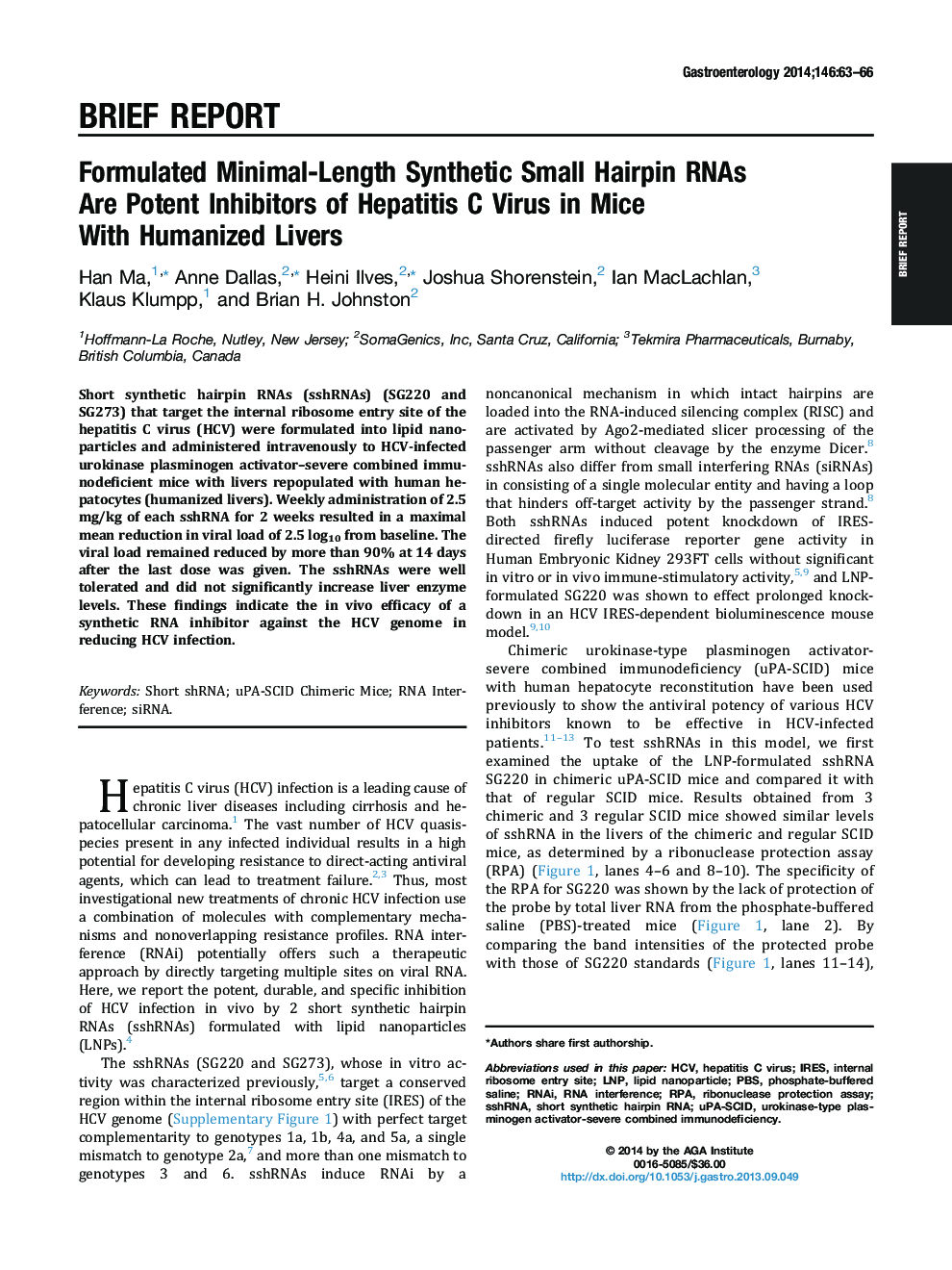| Article ID | Journal | Published Year | Pages | File Type |
|---|---|---|---|---|
| 3292825 | Gastroenterology | 2014 | 9 Pages |
Abstract
Short synthetic hairpin RNAs (sshRNAs) (SG220 and SG273) that target the internal ribosome entry site of the hepatitis C virus (HCV) were formulated into lipid nanoparticles and administered intravenously to HCV-infected urokinase plasminogen activator-severe combined immunodeficient mice with livers repopulated with human hepatocytes (humanized livers). Weekly administration of 2.5 mg/kg of each sshRNA for 2 weeks resulted in a maximal mean reduction in viral load of 2.5 log10 from baseline. The viral load remained reduced by more than 90% at 14 days after the last dose was given. The sshRNAs were well tolerated and did not significantly increase liver enzyme levels. These findings indicate the in vivo efficacy of a synthetic RNA inhibitor against the HCV genome in reducing HCV infection.
Related Topics
Health Sciences
Medicine and Dentistry
Gastroenterology
Authors
Han Ma, Anne Dallas, Heini Ilves, Joshua Shorenstein, Ian MacLachlan, Klaus Klumpp, Brian H. Johnston,
